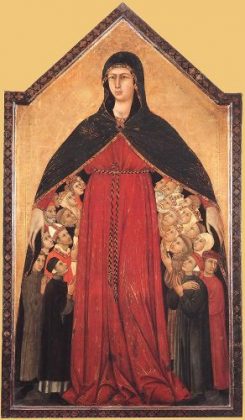Mercy Week invites us to reflect on the life of Catherine McAuley and the mercy face of God’s mission that she exemplified through her life and work.
As Bourke rsm reminds us, “Catherine’s understanding of mercy was essentially scriptural … she saw mercy as a life-giving force, as Jesus proclaimed it: I came that they might have life and have it to the full” (1987. Catherine McAuley and the First Sisters of Mercy. Convent of Mercy: Adelaide. P.4).
Catherine broke boundaries in her commitment to bringing this fullness of life, dignity and mercy to the most vulnerable people of Ireland. Unlike others of her day, she was prepared to break entrenched social conventions and attitudes to poverty. The social standards of 19th century Ireland did not support women taking a hands-on role in managing charitable enterprises. Indeed, the people of Dublin, both lay and clergy, felt outraged that Catherine McAuley and her companions, women of good breeding, should be moving about so freely in the back lanes of the city’s slums.
As Reynolds notes:
What distinguished Catherine from other philanthropists of her day was her ability to imagine life differently. Many of her contemporaries were prepared to provide handouts but could not imagine or even desire a society where those who were oppressed, marginalized or excluded would find a central role and a sense of belonging in that very society….
As we celebrate Mercy Week, we are invited to consider what barriers to fullness of life still exist in our own communities and what we can do to bring the lens of mercy to social injustice and exclusion.
Let us always remember that:
Mercy is a verb – being the face of God’s love to everyone we meet.
Mercy is a habit of the heart – a way of seeing the world.
Mercy is gospel-centred – reflecting the example of Jesus and dedicated to bringing life and dignity to all. It is ‘the beating heart of the Gospel’ (Pope Francis. 2015. Misericordiae Vultus: The Face of Mercy # 12).
Mercy is prophetic – it is a beacon and light for others on the power of love.
Mercy is built on limitless kindness – as Catherine McAuley said – Sisters of Mercy should be the ‘kindest people on earth’.
Mercy is reciprocal – it is blessing and blessedness as revealed in the Beatitudes – blessed are the merciful for they shall be mercied (Matthew 5:7).
Mercy is immediate and constructive – Catherine McAuley reminds us that: the poor need help today not next week.
Mercy is universal – it is not restricted to religion, doctrine or geography – mercy includes the neighbor we cannot see – mercy has a global focus and presence.
Thank you for all you continue to do in the name of Mercy.

Image attribution: Simone Martini, Public domain, via Wikimedia Commons
Reflection
What can we do to bring the lens of mercy to social injustice and exclusion?
